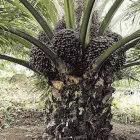World's largest biodiesel plant to be built in Singapore: capacity 36,000bpd, palm oil feedstock
 Australia's Natural Fuel broke ground on Wednesday for a biodiesel plant in Singapore that it said would become the world's biggest such facility, with the firm planning to list in Sydney by the end of the year. The firm is investing US$130 million in the project, one of a series of plants in Australia and the United States, said Richard Selwood, managing director and chief executive officer of Natural Fuel.
Australia's Natural Fuel broke ground on Wednesday for a biodiesel plant in Singapore that it said would become the world's biggest such facility, with the firm planning to list in Sydney by the end of the year. The firm is investing US$130 million in the project, one of a series of plants in Australia and the United States, said Richard Selwood, managing director and chief executive officer of Natural Fuel.The first phase of the plant will come on stream by the end of next year and will produce about 600,000 tonnes of biodiesel, he said. A second and third phase would raise output to 1.8 million tonnes of biodiesel per year (roughly 36,000 barrels of oil equivalent).
"Singapore, with its strategic location, excellent logistics and experience in the petrochemical industry can play a pivotal role as a regional hub for the biofuel industry," he said at the ground-breaking ceremony on Singapore's Jurong Island.
He declined to give exact details on where it would sell the biodiesel, but highlighted countries like Japan, Korea, Taiwan, the U.S. West Coast and Europe. Malaysian and Indonesian palm oil will be the base feedstock for its biodiesel plant in Singapore, but other vegetable oils such as soya and canola will supplement supply.
Unsustainable feedstock
Naively, the firm thinks it will be able to produce biodiesel that "meets British and American standards", as Selwood said, allaying analysts' fears that Western nations' specifications may scupper the high export hopes of southeast Asian producers. "We use German technology to produce our biodiesel, same in Australia," he added.
Of course, using German technology and Anglo-American standards on a clearly unsustainable feedstock doesn't make much sense:
 biodiesel :: biomass :: bioenergy :: biofuels :: energy :: sustainability :: palm oil :: deforestation :: Malaysia :: Indonesia :: Singapore ::
biodiesel :: biomass :: bioenergy :: biofuels :: energy :: sustainability :: palm oil :: deforestation :: Malaysia :: Indonesia :: Singapore ::European Union MP's and environmental organisations are already calling for a ban on palm oil biofuels, and rightly so (earlier post). Natural Fuel's and similar biodiesel plants will spur the expansion of palm oil hectarages, probably the world's most environmentally destructive practise. Not only are pristine rainforests burned down with the result that some of humanity's last remaining hotspots of biodiversity are annihilated, but this deforestation also contributes significantly to dangerous climate change.
Already there are clear signs that the EU - the largest biodiesel consumer - will close its market for this 'deforestation diesel'. The Dutch government, the only government so far that has established provisional sustainability criteria for biofuels, calls palm biodiesel unsustainable. More governments will follow.
There is plenty of choice for using non-destructive energy crops as feedstocks for biofuels: from tree and grass-species to agricultural waste or dedicated crops such as sorghum, cassava or jatropha. Most of these energy crops thrive outside forest areas. The technical potential for sustainable biofuel production - that is, explicitly avoiding deforestation and taking into account rising food demands - remains huge at 1500 Exajoules (roughly 7 times the total amount of oil consumed today on the planet) (see earlier post).
Choosing palm oil is the easiest way, but over the medium to longterm it might be an unwise investment.
Natural Fuel has contracted ConAgra Food Inc. as a main source to secure feedstocks but has other contracts and joint ventures with food suppliers, he said. To further raise money, the firm will be listed on the Australian Stock Exchange (ASX) in December and was expected to be valued at A$112 million ($86.2 million), he said.
The Australian company will begin its first biodiesel production in Darwin, Australia this month. It has plans to start building two other biodiesel plants, one in Houston, Texas and another in Port Botany, Sydney, by 2007.
 -------------------
-------------------
 Spanish company Ferry Group is to invest €42/US$55.2 million in a project for the production of biomass fuel pellets in Bulgaria.
The 3-year project consists of establishing plantations of paulownia trees near the city of Tran. Paulownia is a fast-growing tree used for the commercial production of fuel pellets.
Spanish company Ferry Group is to invest €42/US$55.2 million in a project for the production of biomass fuel pellets in Bulgaria.
The 3-year project consists of establishing plantations of paulownia trees near the city of Tran. Paulownia is a fast-growing tree used for the commercial production of fuel pellets.









0 Comments:
Post a Comment
Links to this post:
Create a Link
<< Home